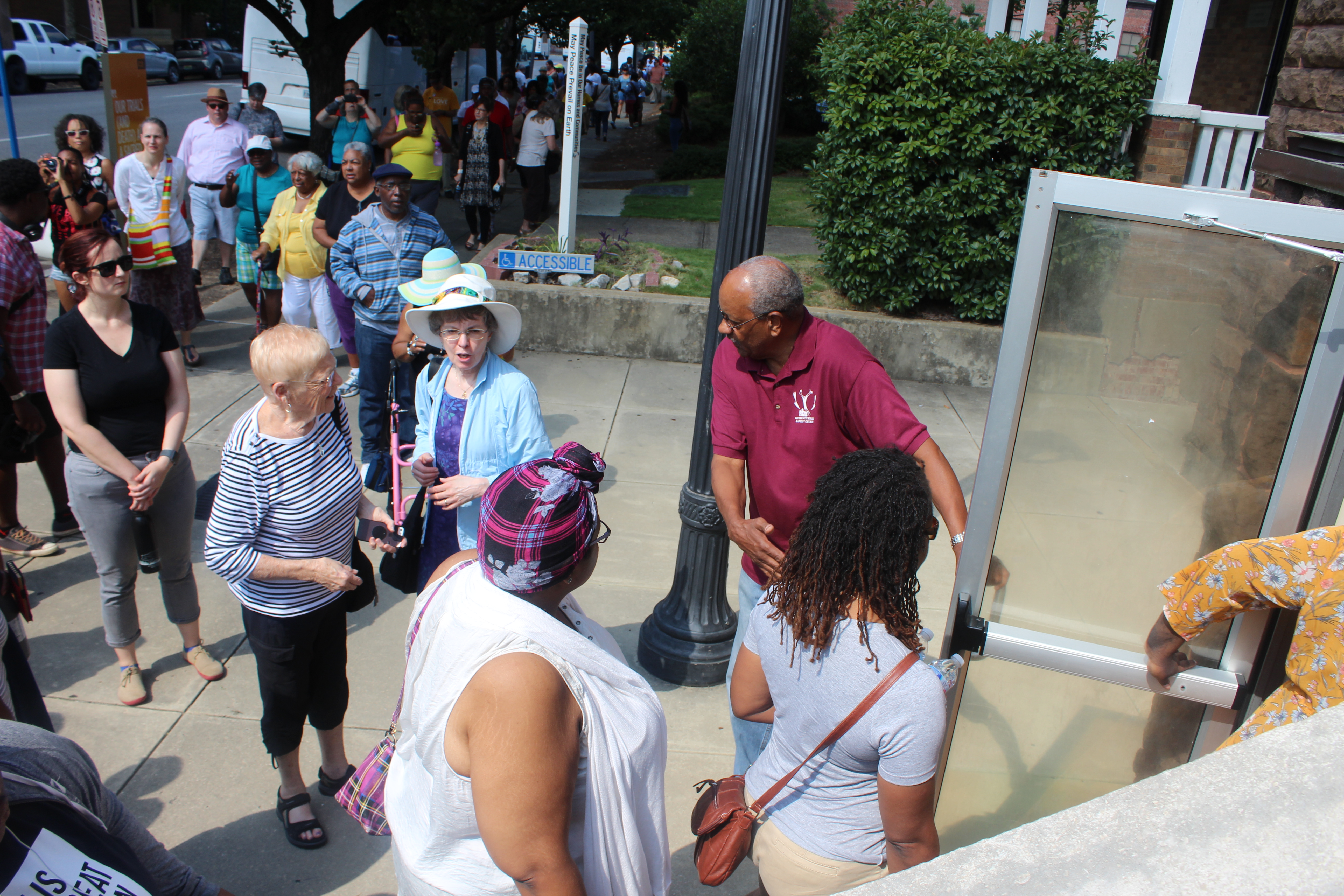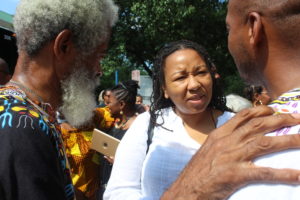
By Ariel Worthy
The Birmingham Times

A delegation of 100 people from Charlottesville, VA – including the city’s first black female mayor – was in Birmingham Wednesday to learn about black history and memorialize a man lynched in their city more than a century ago.
The group toured the Sixteenth Street Baptist Church and the Birmingham Civil Rights Institute then left for the Equal Justice Initiative’s National Memorial for Peace and Justice in Montgomery.
Part of their mission is to memorialize John Henry James, a man who was lynched in their city in 1898. The group carried soil from the lynching site to the EJI’s memorial which has lynching sites soil collected from around the country.
“This man never had a funeral, so this was our memorial of him,” said Jalane Schmidt, associate professor of religious studies at University of Virginia and resident of Charlottesville. “We gathered the soil and it kind of feels like having an urn. This gallon jar of ashes will be put in their display.”
On July 11, 1898, John Henry James was accused of criminally assaulting a white woman at her home near Charlottesville. He was charged for the assault and arrested. That night he was taken out of the jail and put on a train to be moved to a jail in another city for fear of a lynching mob.
The next morning, he was met with a mob of men who boarded the train and seized James and put a noose around his neck. James was then carried to a tree and hung. As he was hung, he was shot multiple times.
The pilgrimage is important for Charlottesville, especially after last year’s KKK rally and the “Unite the Right rally” which ended in the death of a counter-protester.
“Last summer is termed the Summer of Hate in Virginia,” said Nikuyah Walker, the first African American woman to be elected mayor of Charlottesville, elected in January. “And that prompted a lot of us and our citizens to start questioning how do we move forward in this world that we are in, that some people who are just opening their eyes to this hate.”

Charlottesville is a wealthy community, so it backed the pilgrimage, she said.
“The goal is for people to truly understand the historical legacy of enslavement,” Walker said. “How it has continued and perpetuated; having individuals question whether they are help or hindering truly moving forward. Learning from the past and knowing that we are not doing anything new, we’re just learning and growing from movements before us.”
All eyes have been on their city since last year’s rally, said the mayor.
“Last summer wasn’t our main issue,” Walker said. “White supremacy and white privilege has been clear in the day to day actions of our community. Last summer just put us on an international and national map and it just prevents people from being able to deny this post-racial space that people have been claiming that we’ve been in throughout history that we never really entered.”
The rally helped fuel her election.
“I was definitely ready for the challenge,” she said. “I ran a campaign that was pretty clear on how I’m routed, my campaign colors were red, green and black. My campaign slogan was ‘Unmasking The Illusion.’ So there was nothing nice and easy and gentle about the campaign I chose to run. I called out a lot of people in positions of power who perpetuated policies and racial stereotypes through their everyday work. I was still elected even though I did not have to compromise who I am as an individual at any point throughout the campaign. I don’t know if the city was quite ready.”
The current tour which includes children and adults is about education, she said.
“Most people don’t have even the book knowledge, just reading about the experiences that black people in this country have gone through,” she said. “I think it’s another level of understanding when you are hands on, you’re touring the sites, touring churches that were bombed.”



